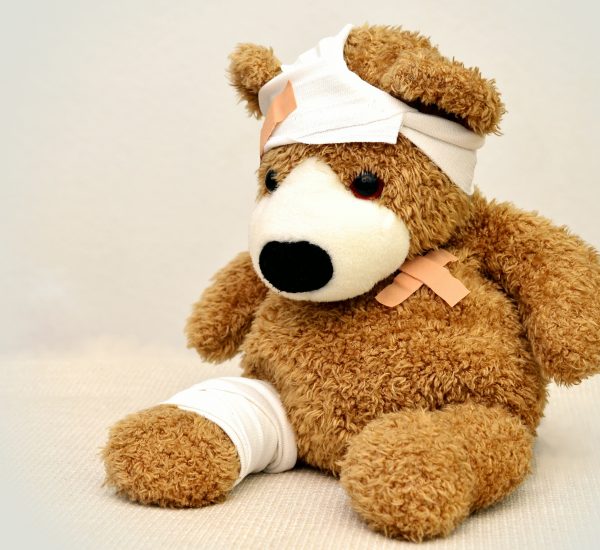When people talk about freelancing, you hear a lot about the benefits. “I’m starting the day with a coffee on the sofa watching Netflix”, “I’m taking the day off because I can”, or “this is my office today”. I’m as guilty as the next person of loving the benefits of working for myself, keeping the hours I choose to keep and working from wherever I like.
But what happens when things don’t quite go according to plan? I’ve been pretty lucky that in the three years since I went freelance I haven’t actually suffered much illness. The odd gym injury, an occasional cold, but nothing serious enough to force me to down tools.
Until October this year.
It wasn’t anything life-threatening. Some kind of cold or virus type thing. But for the first time, I found myself feeling too unwell to work at the usual 100mph that I run my life at. “But you don’t even have to leave the house to do your work,” I hear you cry. Yes, you’re absolutely right, but when you feel that crap the last thing your brain can do is function, let alone function creatively and dynamically, which freelancing often requires. I often juggle my role as a journalist, pitching stories, interviewing people and writing features, with the PR work I do, talking to clients, putting together events and press releases, speaking to the media, and monitoring coverage, as well as writing my own blog and trying to do all the admin that surrounds all of that.

Suddenly the wheels seemed to come off the operation. Not majorly, but I literally couldn’t operate in the way I usually would, doing 12 things at once. I could just about handle one, so the way I worked had to change – prioritising one thing at a time and doing what I would to meet deadlines and all the obligations I have to clients. It sounds very dramatic, it wasn’t anything compared to what some people face when it comes to health or juggling work and life. It felt like it lasted about 12 years but in reality it was only a week or so before I was back on my feet. But it did occur to me that we don’t talk that often about the perils of freelancing – at least not in a proactive way.
Yes, the freedom, independence and ‘girl boss’ stuff is fabulous, but what some people forget is that when you’re freelance you don’t get sick pay, you don’t get annual leave entitlement, and you don’t have anyone else to pick up your workload. I recently enjoyed a wonderful 18-day holiday but the nature of freelancing meant I really couldn’t take that whole time off work – not without incurring a huge black hole in my finances – so I worked while we were away. My choice, but a necessity if I wanted to take that amount of time away from home. Again, with illness, you can’t just call in sick. Well, you can, but you run the risk of losing clients, of not getting commissions again, and pushing yourself further down the pile of what is a hugely competitive world – at least in journalism and PR.
I’m not complaining. I’ll take all those risks and ‘cons’ for all the many positives that make freelancing the best decision for me. But having experienced my first taste of what can happen when things don’t go according to plan, it got me thinking of a few ways you can safeguard your business as a freelancer when illness strikes. I have no authority to write this other than having experienced it and thought a bit about it, and I’m sure there’s much more comprehensive advice out there, but here are a few things that it seemed to me helped me get through with the minimum of disruption:-
Prioritise your work
If you feel rubbish, either through illness or injury and can manage small bits but not the usual hefty workload you tend to carry, then prioritise the tasks that are most important. It’s unlikely that all your deadlines are on the same day (if they are, then sorry, I don’t know what to suggest) so take the most urgent ones and deal with them and try not to stress about the others. You can’t do it all so do what needs doing, then move on to the next most important thing.
Build some support that you can rely on
When I first went freelance I wanted to do it all myself and I quickly realised I couldn’t. Over three years I’ve built relationships with a few people who I can rely on to carry out certain tasks for me (paid, of course). When I was ill, I knew if I asked them to do a few extra things they would not only do them, but do them well, taking the pressure off me. The same applies away from work – the people who care about you will know how difficult it is for you as a one-man (or woman) band and I guarantee will step in to help take the pressure off elsewhere if you’re struggling so you can focus on meeting your work commitments.
Only you know your relationship with your clients

How you deal with your clients or editors when you’re ill is entirely up to you. I chose not to tell all of mine that I was ill, and I’m fairly sure none of them knew. I did the work they required up to the standard they needed it. I didn’t miss deadlines, and I still made it to the odd meeting (though luckily there weren’t many scheduled for that period of time). Other people might feel they want to tell their clients they’re ill and delay deadlines. That is fine too. Only you know your relationship with the people you work for and only you can judge what is best.
It’s not the end of the world
This is a bit rich coming from me, who acts like it really is the end of the world if I’m not doing everything all at once. But it is, at the end of the day, work and the world probably won’t end (in most cases) if it’s a day late or you can’t do everything all at once. You can’t put a price on your health – mental or physical – so if you’re ill, you’re ill. Rest and everything else will be okay. I promise.
